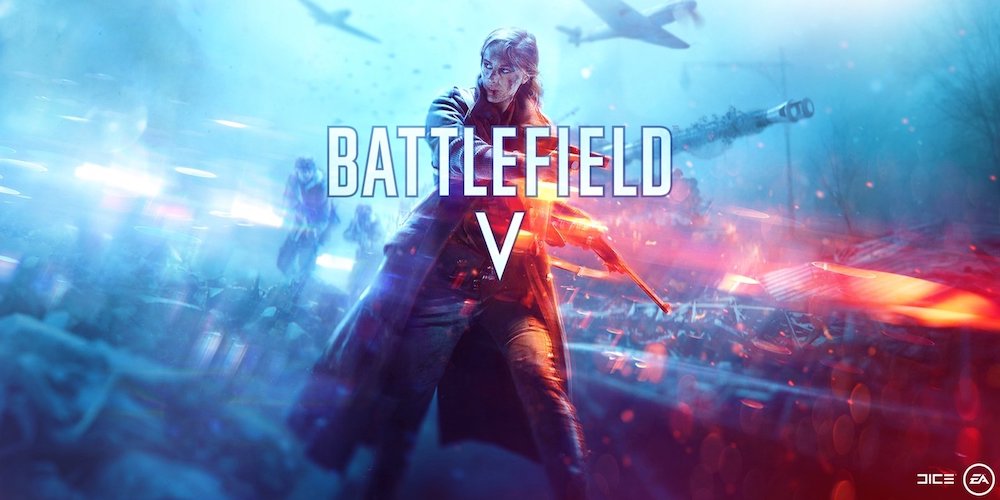
At its unveiling, a lot of fans were underwhelmed by Battlefield V. The previous entry, Battlefield 1, made significant and unpopular changes to the nuts and bolts of the series’ long-established formula, with many decrying it as aiming to please new players a little too much. Personally, I thought it was bold and exciting and was more a bit miffed the series had yet to return to 2143, but I’m probably in the minority there. It also didn’t help that initial previews made Battlefield V out to be yet another casual-courting entry with overly simplified spotting mechanics with team play being thrown to the wind. Much has changed since then, however, and the multiplayer of Battlefield V is much better than I expected, albeit more of a shrewd refinement than a sweeping re-invention. As a result, it might look a lot like more of the same to lesser interested outliers, but in playing, it’s an addictively faster, more strategic and cohesive multiplayer experience than any Battlefield game since Bad Company 2.
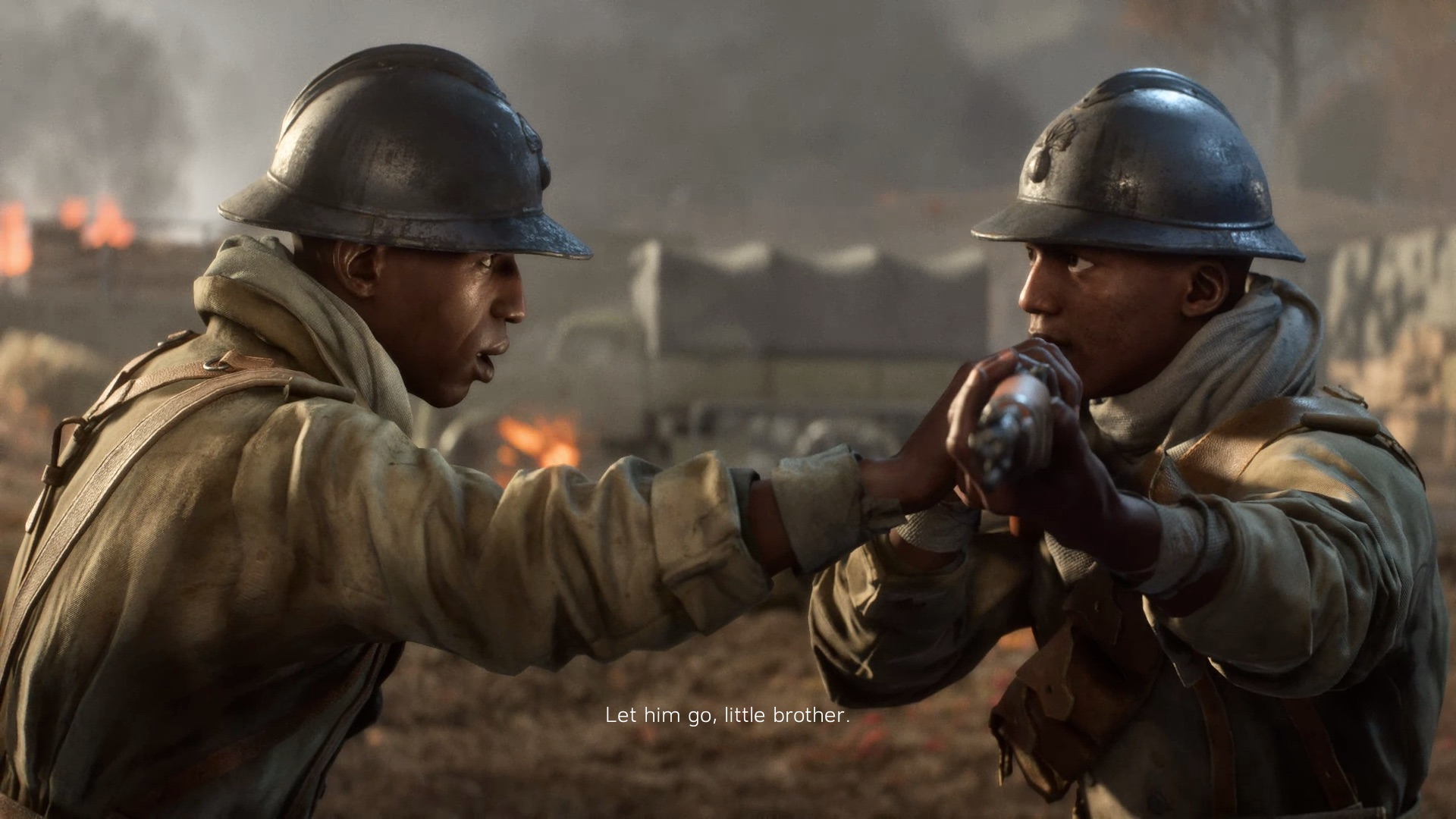
It comes as no surprise, but the single-player is not particularly worthwhile, so Battlefield V fails to defy expectations in that regard. It’s a shame, too, as DICE has a knack for interesting premises for their stories, albeit in ways that lack a great deal of cohesion or that are reinforced in any meaningful way by their gameplay. In returning to WWII, DICE were painfully aware of how well-tread this setting is in shooters, but has managed to surprise by focusing both the single and multiplayer around conflicts less explored in the interactive medium of shooting things until they are dead. A playable intro, which in terms of impact pales in comparison to that of its most recent predecessor, can’t even be saved by Mark Strong’s dulcet tones. It’s the single worst piece of narrative pabulum my ears have had to listen to since the intro to Modern Warfare 2. It’s over quickly, though, so there’s that.
All the same, Battlefield V’s anthology of three one-hour-long “war story” campaigns is novel. The characters and writing are genuinely moving *most* of the time, with good pacing and excellent actors to sell the script. These stories deal with some complex themes well – the third War Story, named “Tirailleur,” in particular, deals with national identity and racism in a way that had me floored by the end of it. The other two deal with more well-trodden concepts like survivalism and family, but are entertaining in their own right, and are distinct enough to warrant a playthrough. It just sucks that the gameplay is so noticeably less interesting.
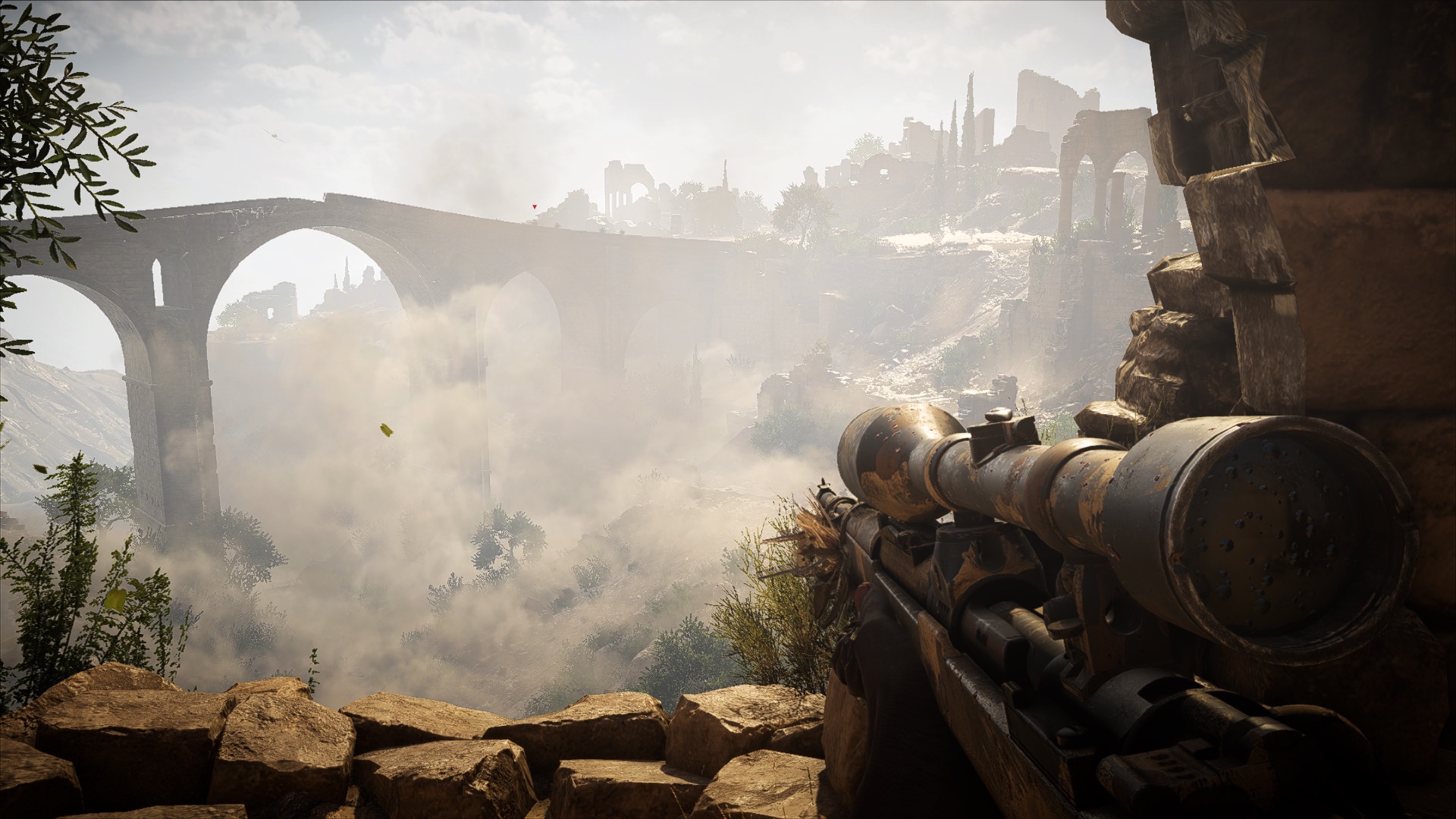
Each campaign is set in a massive level with plenty of freedom of approach and an abundance of weapons throughout for you to pick up and assail fascists with. This approach works for the likes of Far Cry and other large-scale action games because they have well defined AI ecosystems with interesting tactics in firefights and respond to player input like sound and sight in a somewhat realistic fashion. The goons in Battlefield V’s campaign are absolute muppets and a bore to fight. They all have terrible pathfinding, frequently fail to react to seeing their buddies being shot, and have threadbare interactions with one another. Some enemies have more hitpoints, and there are medics to revive others, as well as captains who, well, I’m not sure. It’s a barebones variety of behaviour that shows only a fraction conscious thought in their design.
They are a cakewalk to cut through even on harder difficulties. This fundamental problem isn’t helped by the amount of janky clipping and animation issues I encountered during my playtime of about five hours with War Stories. It yanks you out of the rather arresting atmosphere that the sublime level of detail that Frostbite tech is so capable of producing, and it’s just sad that this is still a problem even after decades of criticism pointing out the same issues over and over again. In all fairness, the “Nordlys” story was a minor exception, as it hands players a pair of skis to explore its levels with, and for a while, I managed to enjoy it a great deal in spite of the jank and dim-witted AI.
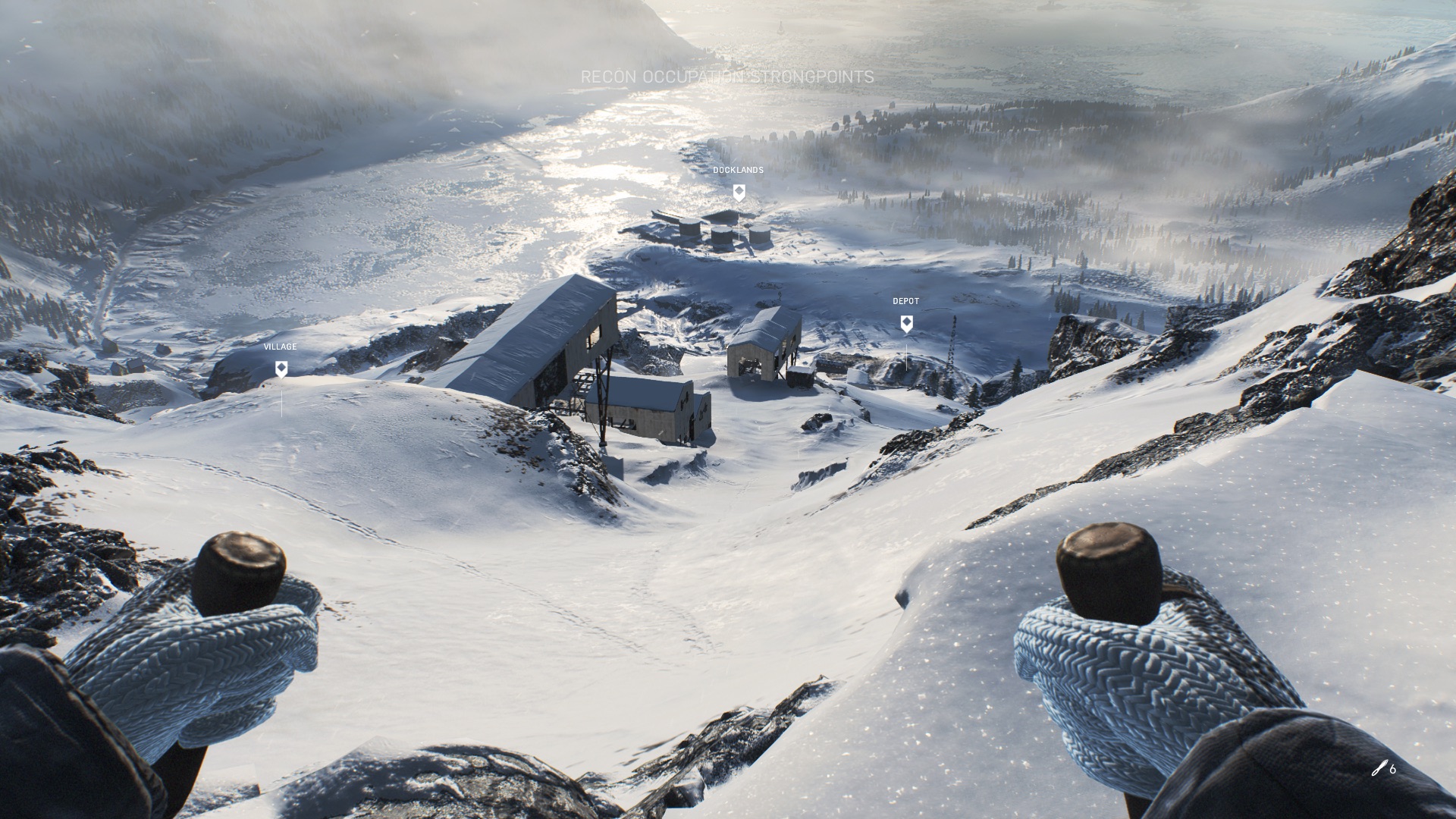
Despite any disappointment I might have had with the campaigns, they were easy enough to look past as Battlefield V’s multiplayer is like a shot of hot sex straight into the veins. Muddy, shouty, tanky sex – ahem. Battlefield V is somewhat of a relief after the messy and directionless multiplayer experience in Battlefield 1. That entry had a metagame and weapon economy that was both built around obsolescence over built-in functionality, and team play was less encouraged by design. Medics had long-range high-DPS semi-auto rifles for some inexplicable reason, the randomised ballistics made SMGs frustratingly powerful at longer than expected ranges, negative feedback loops were incorporated in an attempt to appeal to newcomers, and aerial vehicles were both laughably overpowered and shockingly easy to snipe drivers out of.
As a reaction to the issues and more, Battlefield V removes an awful lot of what was there previously, and its additions outwardly seem granular. But once played, it’s plain to see how much better things feel; Battlefield V is faster, more hectic and strategic than Battlefield has ever been, with a high skill ceiling once again. By Jupiter’s olive-scented nipples is it good. Ballistics are now predictive so that no random spray shots will stray off two metres to your left any more, and as a counter recoil is significantly increased for all weapons. Time to kill is down by a considerable margin, sniper rifles MUST hit a head-shot to kill instantly, and there’s more than double the number of vehicles available at launch compared to Battlefield 1. Lastly, shoulder-mounted rockets and fast moving aircraft make a most welcome return, allowing for my favourite moments of fly-swatting irritating bombing raids in the very best kind of David and Goliath moments to be had in multiplayer shooting.
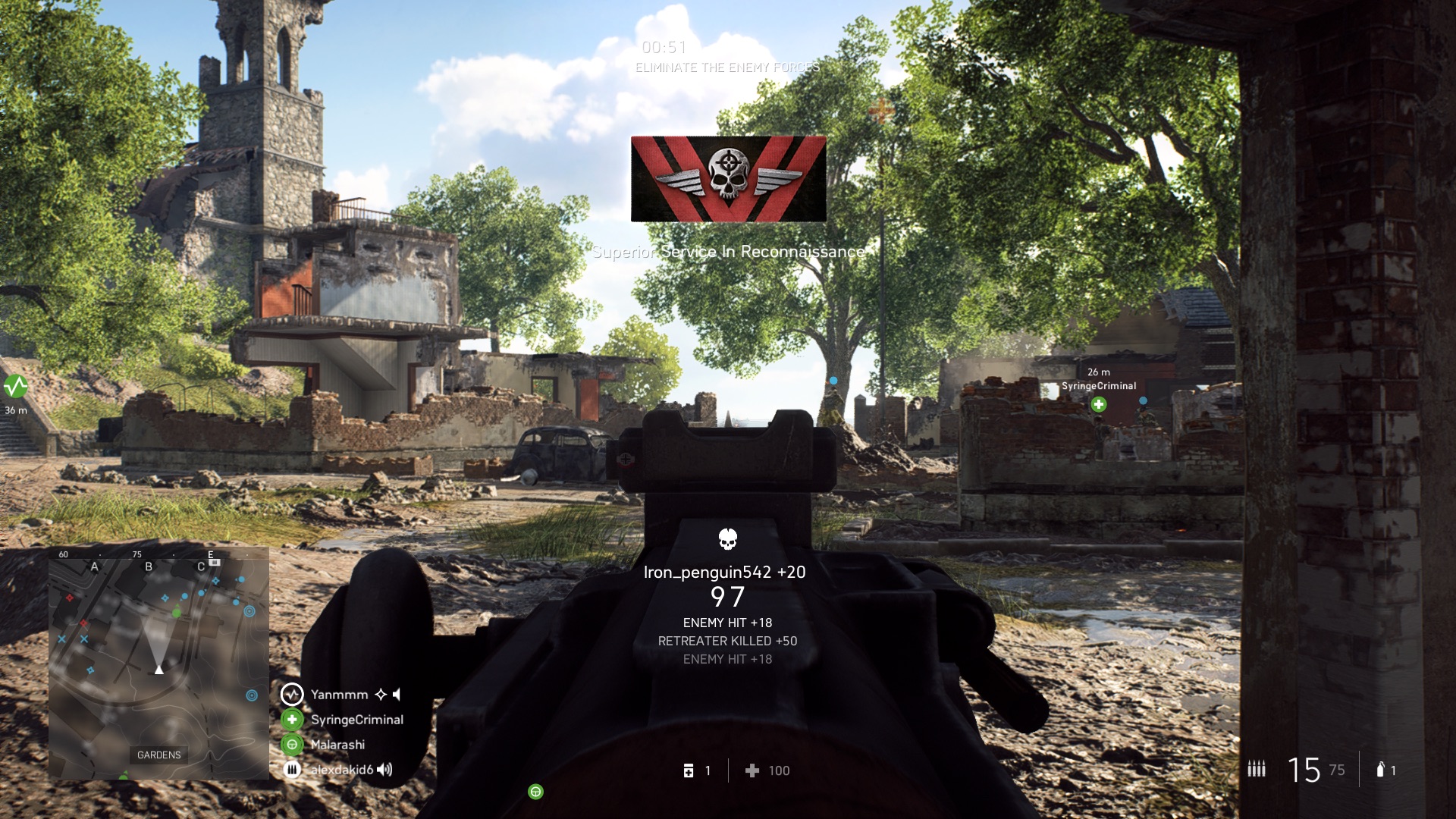
So far, so very mundane. What is actually new here, I hear you ask? The biggest addition takes form in the “attrition system,” which is a collection of mechanics that aim to make players more reliant on one another and reduce camping. Ammunition is scarce, so you’ll either need to constantly gather ammo packs from defeated enemies, your teammates or supply depots at capture points. Health regenerates only to a minimal point after escaping a firefight, and while each class can carry one med-pack for a full regen, you’ll need to stay close to your squad to remain effective. Squad members can now revive one another, albeit at a slower rate than a standard medic, but this keeps teams in the fight for longer more often, adding to the momentum of a match and assuaging some of the pressure on medics. Players can also call in resupplies from air-drops once they’ve earned enough points, and squad leaders can also call in V1 rocket artillery if they’re doing well. These are also complemented by binary class specialisations, with different perks, abilities and even equipment now packaged together for each class for extra tactical consideration.
Additionally, Battlefield V includes a somewhat unexpected addition in the form building defences, and the usefulness of this is mostly circumstantial. In the quiet moments before a fight in a match of conquest they can help solidify a position, unless there’s a tank nearby, then you may as well be standing behind papier mache. It can help rack up points towards a V1 rocket, or help provide some necessary cover in a partially demolished building, but it depends on the strength of the position itself on the map, so it’s up to you to figure it out. Most of the time, however, things are too hectic to even think about using this feature. Spotting, the crux of all engagements in Battlefield, is now only available to the Scout class. Other classes can make call outs to positions on the map, but just the scout can paint targets and vehicles, making them a genuinely important support class rather than the sole occupancy for psychotic tent-pitchers.
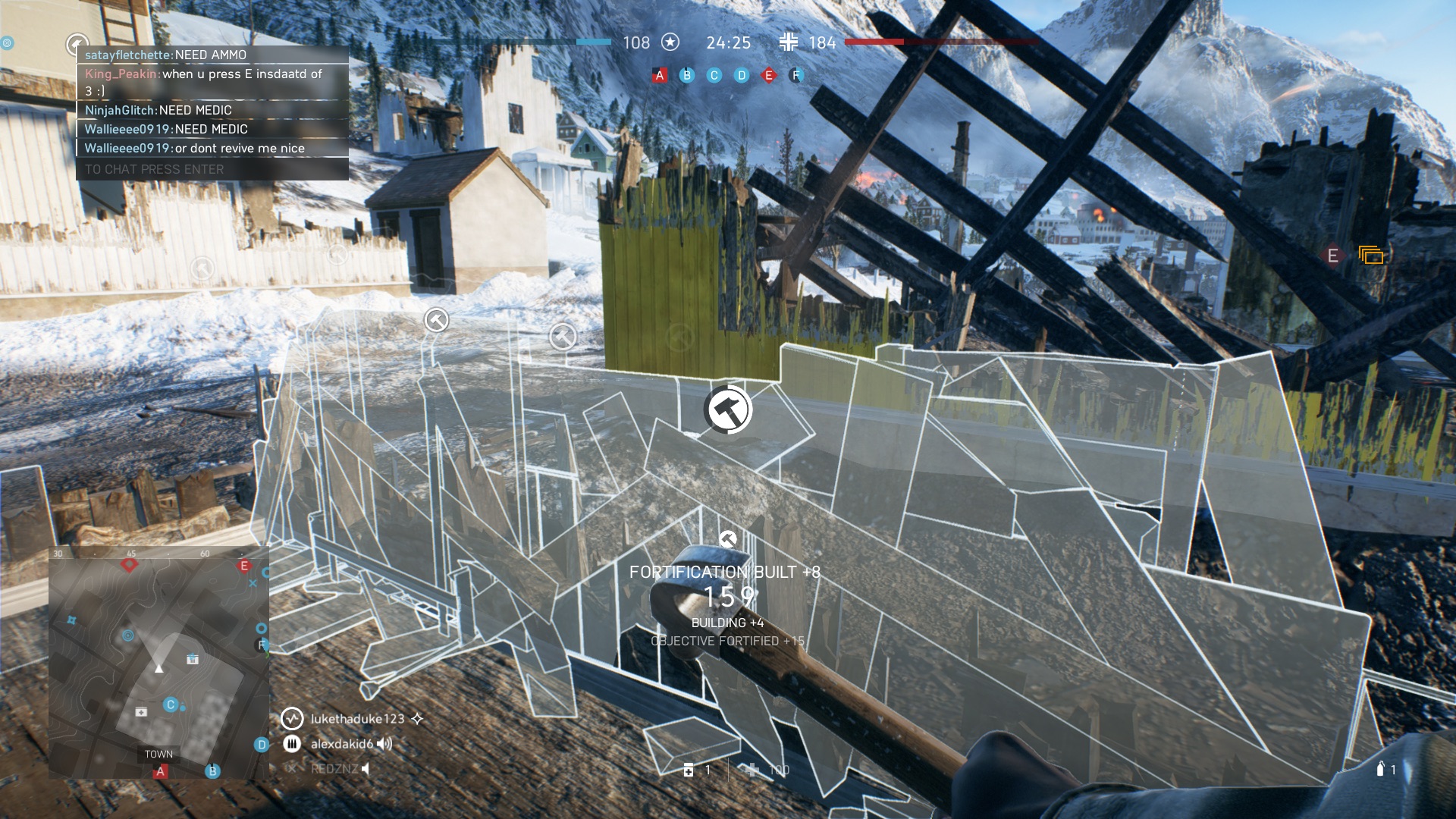
Concerning modes, there are currently three new ones, two of them being variants of “rush” from previous entries where the focus is on two control points at a time. However, the standout mode is “Grand Operations.” Taking place over four in-game “days” grand operations are mixtures of game types centred around one or two maps. These “days” are short, with a small number of respawn tickets and a unique mode, time of day, and weather setting. A match may start with the attacking side parachuting in to take AA guns in the first part of the match, then moving to a domination or breakthrough mode, and ultimately culminating in a conquest match at the end. Grand operations are an excellent way of showing off how differently each map can play under different conditions, and the short, bite-sized matches of a single day helps to avoid the feeling of being bogged down that standard conquest can often instil. Sitting through for the duration of a grand operation is then a surprisingly easy affair not to notice; at one point I’d lost track of three whole hours on what felt like only a handful of matches.
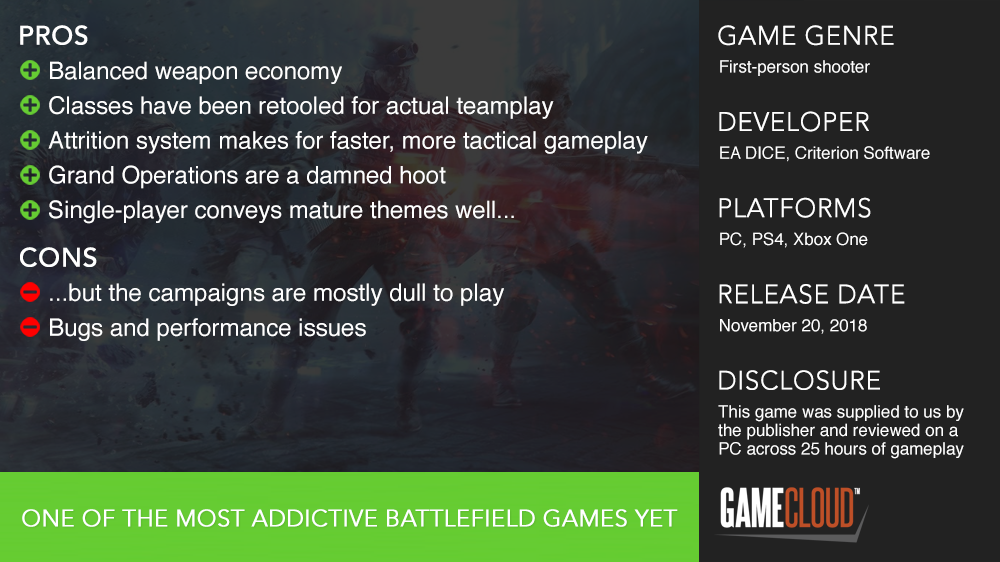
Battlefield V isn’t without issues. The single-player is novel but boring, and the game currently has more than its fair share of bugs. However, none of this managed to dampen my time with the multiplayer. There’s a lot to like here if you’re a Battlefield fan, and I’ve barely touched on all the good that’s still in this game, let alone what’s yet to come. The maps are all of a high quality, especially the likes of “Twisted Steel” and “Arras,” which are both set in the French countryside and are absolutely beautiful. The company system, too, allows for the best level of player customisation yet seen in the series. Further to this, loot boxes are gone, all DLC including future single-player episodes are going to be free for everyone, and a Battle Royale mode is still on the way. This is the game Battlefield 1 should’ve been and is one of the most addictive instalments in the series yet.











